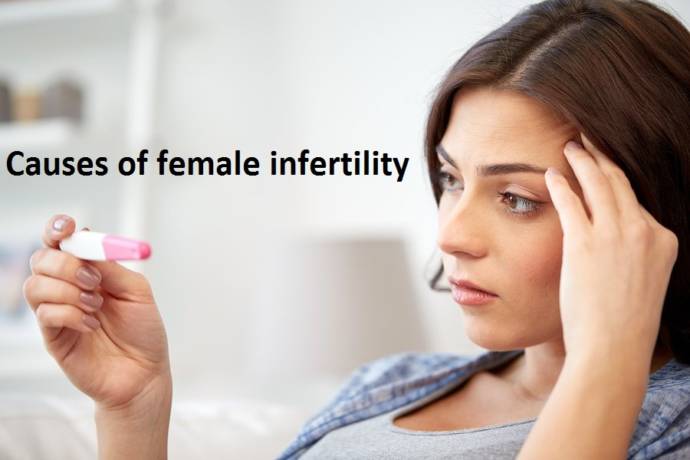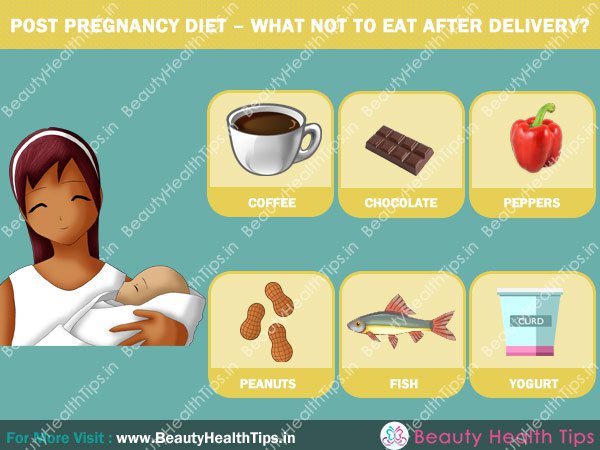Female infertility is the condition characterized by the absence of pregnancy after regular unprotected sexual intercourse for 1 year. There are various causes associated with this condition including hormonal imbalance, tumor, ovulation problems, underlying disease, age, and obesity.
Types
Infertile can be subdivided on the basis of underlying causes of the condition:
- Infertility due to ovulation: Egg is released from the ovary every month and is available to the sperm for fertilization. However, due to some disturbances, either the egg fails to release from the ovary or a poor quality egg, incapable of generating a fetus, is released. This type of infertility is seen in patients suffering from polycystic ovary syndrome.
- Infertility due to tubal defects: Fallopian tubes are the passageway for the egg. Any obstruction or damage to this tube also results in infertility.
- Infertility due to hormonal problems: Hormones are the primary chemicals secreted by the body to achieve pregnancy. Hormones are also required for ovulation.
- Infertility due to Pelvic Inflammatory Disease: Pelvic inflammatory disease and sexually transmitted disease results in infertility.
Causes
Variety of causes results in the occurrence of female infertility. Some of them can be managed through proper medication while other conditions required chronic treatment and may or may not be treated. Following are the causes of female infertility:
- Polycystic ovary syndrome: This is one of the most common causes of female infertility and is caused due to the formation of a cyst in the ovary and is characterized by no egg release.
- Thyroid gland disorders: Low level of thyroxine hormone also leads to female infertility.
- Obesity: Obesity has a strong connection with infertility. Obese women have a high risk of developing polycystic ovary syndrome and the insulin resistance of such people are high.
- Tumor: Tumor either in the reproductive system or chemotherapy for cancer in parts other than the reproductive system reduces the number of healthy eggs in the ovary.
- Smoking and alcohol intake: Smoking and alcohol intakes increase the oxidative stress in the body and affects the development of healthy eggs.
- Endometriosis: It is the condition in which the cells of the uterus grow outside the uterus. The inflammation of endometriosis may cause infertility.
- Hormonal imbalance: Various hormones are required to conceive and maintain pregnancy. Any change in the hormone level may result in infertility or miscarriage.
- Pelvic inflammatory disease: Pelvic inflammatory disease increases the risk of female infertility.
- Hostile cervical environment: Sometimes the mucus of the cervix is so thick that the sperms are unable to travel through it to fertilize the egg. This may also cause infertility.
- Age: With age, the level of healthy eggs in the ovary gets reduced.
- History of ectopic pregnancy: Female with a history of ectopic pregnancy are at higher risk of developing infertility.
Symptoms
Following are the symptoms of infertility:
- Heavy bleeding
- No bleeding
- Irregular bleeding
- Painful intercourse
- Hormonal disturbances
- Pelvic pain
- A backache
Ways to diagnose
Women who are not able to get pregnant after regular, unprotected sexual intercourse for 12 months is said to be suffering from female infertility. Following are the techniques used to diagnose female infertility:
- Blood tests: Blood tests are recommended to analyses the level of hormones and various substances of interest. These include thyroxine hormone, progesterone, and prolactin levels in the blood. Ovarian reserve testing can also be done through blood tests. The hormones to be analyzed in this condition are Follicle stimulating hormone, Anti-Mullerian hormone, and estradiol.
- Hysterosalpingography: This is an X-ray procedure used to identify whether there is any blockage in the fallopian tube. It is done with the help of contrast iodine.
- Vaginal Ultrasound: Vaginal ultrasound is done to diagnose the presence of an ovarian cyst or uterine fibroids.
- Urinary testing: Urine can also be tested for the presence of Luteinizing hormone.
Risks if neglect
One of the most important risks of infertility is emotional distress. The patient may develop serious mental health problems. Even if the treatment is in progress, many couples undergo both emotional and physical trauma. They may suffer from a lack of patience and social isolation is seen in many couples.
Neglecting infertility also increases the risk of an undiagnosed underlying condition. Infertility may be due to pelvic inflammatory disease, sexually transmitted disease and tumor. These are serious conditions and should be treated after proper diagnosis.
Stages
Following are the stages of infertility:
- A) Primary infertility: Primary infertility is defined as the condition in which the women never been able to achieve pregnancy for a single time.
- B) Secondary infertility: Secondary infertility is the condition characterized by the presence of infertility after conceiving at least for a single time and now is not able to conceive.
Foods to eat and avoid
Foods to eat:
- Drink a sufficient quantity of water
- Leafy vegetables
- Beans
- Tomato
- Onions
- Citrus fruits
- Eggs
- Fish
- Nuts
- Chocolates
Foods to avoid:
- Caffeine
- Spicy food
- Meats
- Processed food
- Ice-cream
- Foods with a high glycemic index such as
- Low-fat dairy products
- Soft cheese
Prevention tips
- Avoid smoking and drinking alcohol and coffee.
- Follow a routine exercise.
- Get a regular check-up from your healthcare professional.
- Follow a healthy lifestyle.
- Keep a watch on menstrual cycle and calculate fertile window.
- Maintain a healthy weight.
- Avoid caffeinated drinks.
When to see a doctor
The patient should immediately book an appointment to the doctor if:
- There is abnormal bleeding.
- The patients suffer from abdominal pain.
- Itching at the vaginal area.
- Vaginal discharge with a foul smell.
- The patient feels feverish, fatigue and lethargy.
Do’s & Don’ts
Do’s
- Remain stress-free
- Maintain a routine check-up
- Incorporate exercise in your daily routine
- Maintain a healthy diet
- Do talk with your healthcare professional
Don’ts
- Do not smoke
- Do not drink alcohol
- Do not ignore the symptoms related to the reproductive systems such as bleeding or discharge
- Do not overuse vaginal lubricants
Risks for specific people
Elderly women are at higher risk of developing infertility as compared to young women. Further, the risk of infertility increases in women who smoke and have obesity. Patient suffering from the sexually transmitted disease have higher chances of developing infertility.





